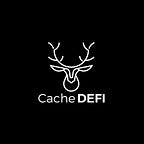Disruptive Decentralized Crowdfunding
THE PROBLEM WITH VENTURE CAPITAL
Across the world, discriminating on the basis of gender, race, or age is considered immoral, and in some cases, is illegal. But venture capitalists and institutional investors across industries routinely discriminate against promising entrepreneurs under the guise of “pattern recognition”.
What exactly is “pattern recognition”? It is the bold claim made by investors that they can recognize someone poised for success when they see one. However, their pattern of investment over the years has proven, beyond reasonable doubt, that their ideal entrepreneur always resembles Mark Zuckerberg, Bill Gates, or Jeff Bezos. Typically, a nerdy white male.
According to Forbes, “Data from Richard Kerby at Equal Ventures … shows the lack of diversity in venture capital, or specifically that: 58% of venture capitalists are white men, 20% are Asian men, 11% are white women, 6% are Asian women, 2% are Black men, and 1% Black women, 1% are Latinx men, and nearly 0% are Latinx women”.
According to Crunchbase, “We are on track to hit a blockbuster funding year with $454 billion invested through the first three quarters of 2021. This contrasts with $332 billion invested globally in 2020 across all funding stages”. Despite this huge pool of invested funds, the reality is that only 1% of startups are actually capable of making the returns required to get VC funding, so what happens to the other 99%, many of which are promising, but not billion dollar ideas? One option is Crowdfunding.
CROWDFUNDING: ITS PROMISE AND ITS PROBLEMS
According to Investopedia, “Crowdfunding is the use of small amounts of capital from a large number of individuals to finance a new business venture. Crowdfunding [has the] potential to increase entrepreneurship by expanding the pool of investors beyond the traditional circle of owners, relatives, and venture capitalists”.
The most popular of these platforms is Kickstarter. According to Kickstarter, it has helped channel funding worth $6,301,301,609 to 213,686 startups. According to Fundera, a total of $17.2 billion is generated yearly through crowdfunding in North America.
Crowdfunding alleviates some of the problems of VC. However, crowdfunding is not without its problems:
Crowdfunding is actually a Loan Mechanism: Crowdfunding is a presale mechanism, where contributors provide the capital a company needs to manufacture and ship its first batch of product to them. The contributors have no stake in the company, hence, they do not contribute to decision-making, so it’s not an investment.
Excessive Share for Facilitators: Companies that host their campaign on platforms such as Indiegogo or Kickstarter have to pay around 5% of the total funds raised to the platform and up to 5% to third-party service providers such as payment gateways. In total, up to 15% is lost to facilitators.
Projections don’t always match Reality: Crowdfunding companies fail because the prepay (loan) system tends to work against many of the companies. Once production begins and costs, such as operating costs, start to spiral out of control, the company falls into bankruptcy.
WHAT IS THE SOLUTION?
CACHE DeFi is a decentralized finance crowdfunding platform which will enable a community of stakeholders (such as customers, mentors, partners, fans, or even employees) support any startup by buying up shares with any amount of money. The Cache DEFI Project will decentralize venture capital with blockchain crowdfunding and offer opportunities for CACH token holders.
FEATURES OF CACHE DEFI:
Flexible: Unlike traditional VC whose high initial investment amount restricts access to only the top 1–2% of the population, small amounts of money are acceptable, and hundreds of investors could join the project.
Easy: Creating equity paperwork is too complicated and costly. CACHE DEFI eliminates these complications by leveraging smart-contract technology.
Liquid: Some investors do not want to be locked into an investment for 10 years. CACHE DEFI will work with supporters, partners, and investors to develop a 2nd market to sell shares.
Continuous: Fundraising over multiple netorks is very time-consuming. CACH DeFi will give founders the space and peace-of-mind they need to focus on building their business.
Low Transaction Fees: CACHE DEFI offers low fees: $0.08-$0.20 average transaction fees. The project aims to reduce total fees closer to 1.5% so that startups can have the bulk of funds.
Token: Currently the token is a BEP-20 token written in solidity. It is compatible with both Binance and Ethereum. CACH Token will be supported by a new concept stock-bearing token, similar to how bearer bonds work (A bearer bond is owned by the holder, or bearer, rather than by a registered owner, making it very easy to liquidate and transfer). 1 Token = 1 Share of the company funded. However, this still requires regulatory approval as some countries do not have legislation for bearing shares.
Governance and Transparency
Investors will have the power to contribute to decision-making in the company because they are actual shareholders.
Funding Democratized
CACHE DEFI platform will democratize access to funding for entrepreneurs. No longer will entrepreneurs be subjected to VC biases, the quantity of investment they receive will be dependent on their ability to share their vision and inspire investors.
Risks are Reduced
Crowdfunding backed by a reliable blockchain makes it easier to obtain funding because investors feel secure. Entrepreneurs can avoid going into debt to build their companies and they have a pool of shareholders who will also be their early customers.
Accounting Problems
With traditional crowdfunding, investors usually find it difficult to understand how funds are being used and when they will receive the rewards promised. CACHE DEFI solves this problem through the use of smart contracts. This assures the investor that the contract will be honored and the rewards will be paid automatically once the conditions stipulated in the contract are met.
Cache DEFI (CACH Token) Presale Jan 15, 2022
